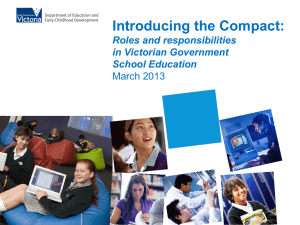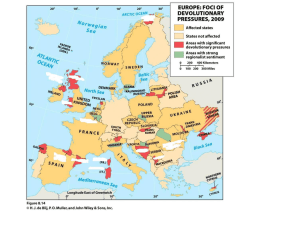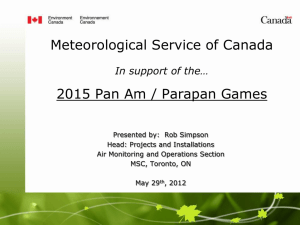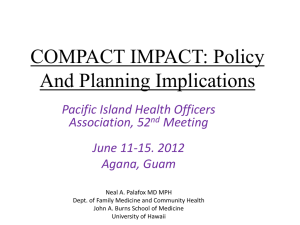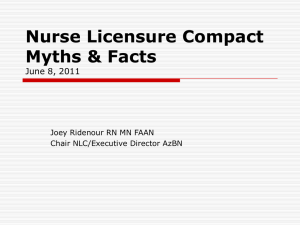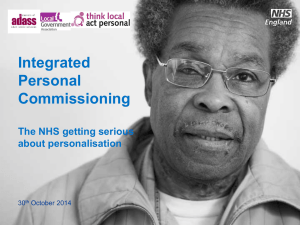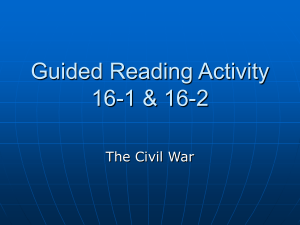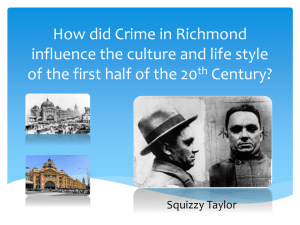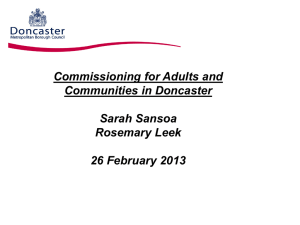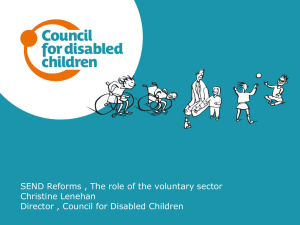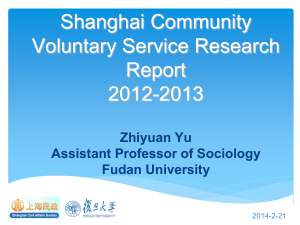View the slideshow - London Borough of Richmond upon Thames
advertisement
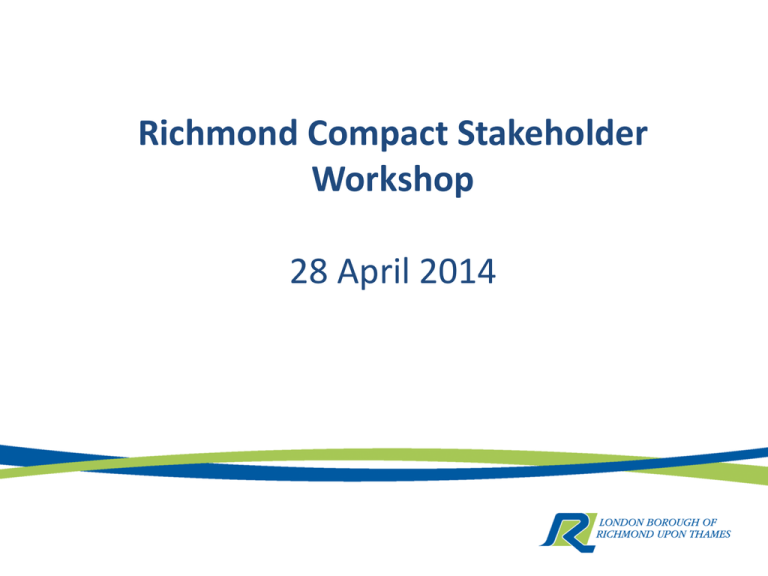
Richmond Compact Stakeholder Workshop 28 April 2014 Welcome Cathy Kerr, Director Adult and Community Services on behalf of the London Borough of Richmond upon Thames David Sidonio, Chief Executive, Richmond Council for Voluntary Service Compact Review – progress so far… • State of the Sector Report 2013 • Considered by the Richmond Partnership Executive; commitment given by key partners • Compact Steering Group of cross sector representatives has been convened. First meeting held in March. • Richmond Compact Stakeholder Workshop Local Compact Successes • New partnerships between voluntary organisations such as the Carers Hub, which enable carers to access a much more holistic service. This has resulted in a 25% increase in carers registering for the service. • Revision of contract terms and conditions, to make them shorter, easier to understand, and allow up front payments to help create a level playing field between larger and smaller providers • Focused support and market development of the voluntary sector to respond to new commissioning opportunities • Voluntary Sector Forum The Compact – “The Power of Partnerships” Monika Hofman Compact Voice April 2014 What is the Compact? • Has existed since 1998 • Agreement between government and the voluntary and community sector • Sets out 5 key principles that provide a foundation for better partnership working • Applies only to England • It is most useful at the beginning of relationships: It is not simply something to use when things go wrong Compact Voice – who are we? • Charity representing the voluntary and community sector on Compact • Co-signatories on national Compact • Membership organisation – over 3100 • Aim to promote Compact through training, support and expertise www.compactvoice.org.uk Compact Principles • Independence and the right to campaign • Consulting with charities when developing policies • Supporting charities to deliver projects and services • Understanding the impact of changes to funding and other forms of support • Protecting and considering disadvantaged groups Local Compacts • 165 local Compacts across England • 97% of the country have a local Compact • Many of these will reinterpret the principles of the national Compact to reflect local need • Local Compact Annual Survey: 88% of respondents think they are important • Local Compact groups support local partnerships Policy Context I –Social Value Act –Public Sector Equality Duty –Best Value Statutory Guidance Policy Context II –Localism Act –Joint Strategic Needs Assessments (JSNAs) –Payment by Results (PbR). Accountability mechanisms National • National Audit Office report • Parliamentary & Health Service Ombudsman • Departmental business plans Local • Local Government Ombudsman • Best Value Statutory Guidance Why are Local Compacts important? Sector that is able to engage Mechanism which enables them to engage effectively www.compactvoice.org.uk Public body that wants to engage Why Renew your compact? • Is awareness of your local Compact poor? • Does it sit on the shelf unused? • Is it understood and used by one sector and not another? • Is the wording out of date? Local Compact Successes • The new Sutton Compact was launched in February 2013. • There was a wide array of collaborative work supporting its development. • The process of discussing and agreeing the new Compact had a positive effect on clarifying and enhancing the positive working relationships across all sectors. • In addition, a number of joint projects have developed as a result of the new Compact • A joint project between London Borough of Sutton and the voluntary sector to develop a local framework to measure social value in the local commissioning process. Local Compact Successes • • • • The London Fire Brigade (Merton) used Compact principles to develop a unique scheme that extends the role of frontline fire brigade staff to become advisors on smoking cessation and to refer vulnerable residents into alcohol and drugs support. Through discussions at the Compact Board, a multiagency partnership approach to reducing home fires was developed. This led to 120 frontline LFB staff being trained as Level 1 Smoking Advisors by Public Health colleagues. Merton have uniquely used frontline LFB staff to act as a referral into specialist support services and have engaged with the voluntary sector to identify those at highest risk. For the first time, through this unique partnership, LFB are playing an important role in the reintegration of some of Merton’s most vulnerable residents Any Questions? More information on our website: www.compactvoice.org.uk Richmond Renewing a Compact Breakout Session Compact a Collaborative Partnership Discuss… Compact Outcomes 1: A strong, diverse and independent voluntary and community sector • • • Right to campaign regardless of financial relationships The need for resources and support Data and information more accessible 2: Effective and transparent design and development of policies, programmes and public services which takes account of a wide range of views and experiences, including users of statutory and voluntary sector services • • • Consider social impact Work with the VCS from the earliest possible stage Consultations, feedback and opportunities for engagement Compact Outcomes 3: Responsive and high-quality programmes and services that are enabled through appropriate and proportionate procurement methods, and which achieve best value for residents • • • Commissioning and procurement policies Greater role for the VCS in delivering public services Social Value 4: Clear arrangements for managing changes to programmes and services by both sectors. • • • Decommissioning procedures Changes in funding arrangement Reallocation of funding Compact Outcomes 5: Active partnership working recognising the synergies it brings to how we work together 6: All programmes and services are underpinned by principles of equal opportunities and valuing diversity • Consider under-represented and vulnerable groups • Equality Impact Assessments Task One – Agree Outcomes and identify what stakeholders are already doing to meet the Compact • Delegates on each table to consider their respective outcome; should it be phrased differently, and suggestions? • Delegates on each table to consider what they already do to meet their respective outcome(s)? Task Two – Identify Commitments for a Future Compact • Delegates on each table to consider how their respective organisations’ could meet the outcome; what could their commitment be to achieving that outcome? Break Task Three - Embedding your local Compact Undertakings • How will your organisation make the Compact happen? • Discuss the mechanism for implementation • Who signs up to it? Dispute Resolution • What will you do if something goes wrong? • Who can deal with any issues that arise? • How will you learn from them? Next Steps • • • • Agree the first draft – participation from all sectors Consultation – engagement events and outreach Feedback from this process A new draft Compact for the Richmond Partnership Conference on 4 July 2014 • Get key people to sign up • Finalise in September • Take it forward

